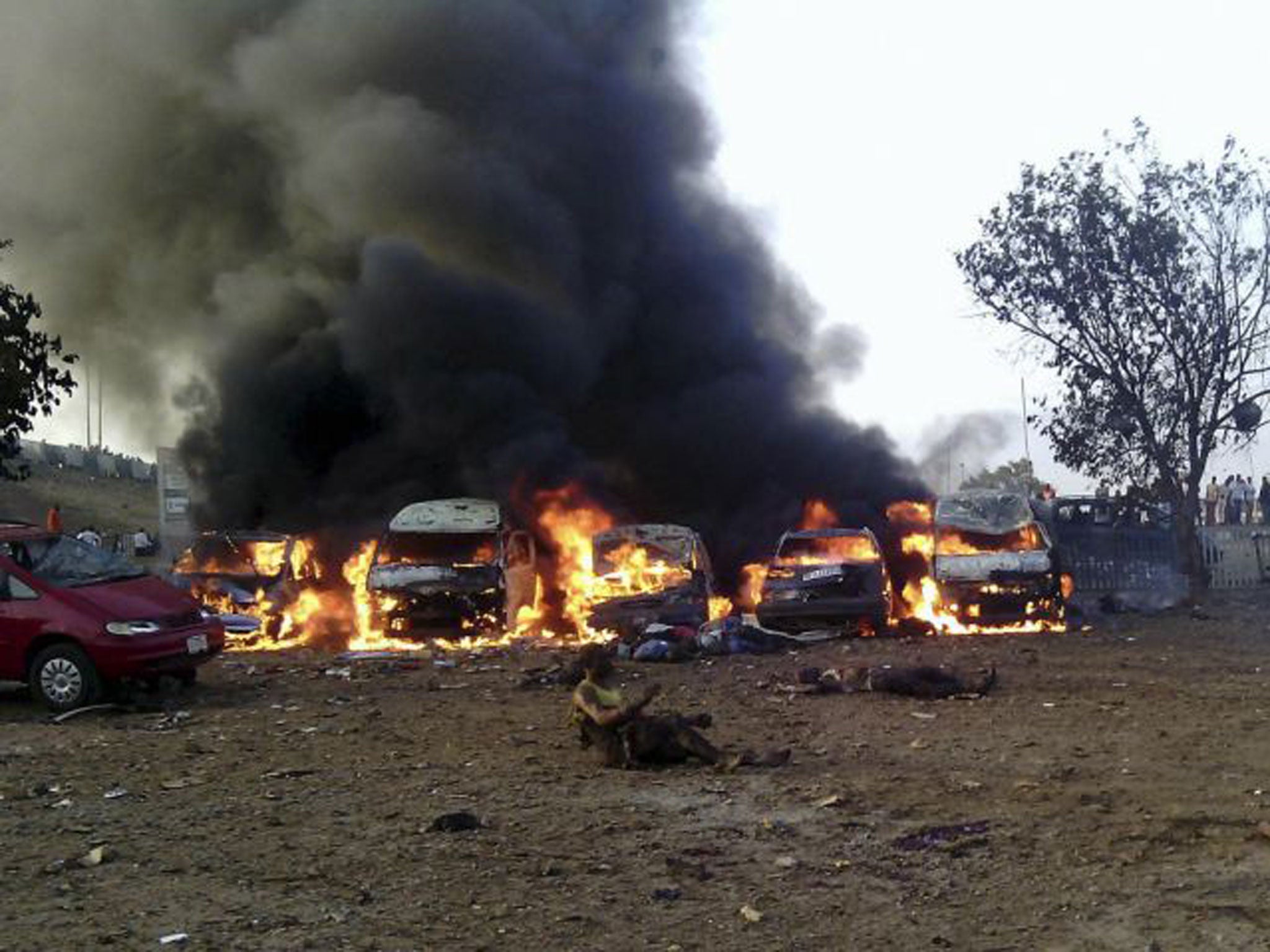Nigeria explosion: Rush-hour bomb kills 71 prompting fears of growing Islamist insurgency
Security experts suspect the explosion came from inside a vehicle

Your support helps us to tell the story
From reproductive rights to climate change to Big Tech, The Independent is on the ground when the story is developing. Whether it's investigating the financials of Elon Musk's pro-Trump PAC or producing our latest documentary, 'The A Word', which shines a light on the American women fighting for reproductive rights, we know how important it is to parse out the facts from the messaging.
At such a critical moment in US history, we need reporters on the ground. Your donation allows us to keep sending journalists to speak to both sides of the story.
The Independent is trusted by Americans across the entire political spectrum. And unlike many other quality news outlets, we choose not to lock Americans out of our reporting and analysis with paywalls. We believe quality journalism should be available to everyone, paid for by those who can afford it.
Your support makes all the difference.A rush-hour bomb killed at least 71 people at a Nigerian bus station on the outskirts of Abuja on Monday morning, raising concerns about the spread of an Islamist insurgency after the deadliest-ever attack on the capital.
Suspicion fell on Boko Haram, though there was no immediate claim of responsibility from the Islamists who are mainly active in the north-east. As well as 71 dead, 124 were wounded in the first attack on the capital in two years.
Security experts suspected the explosion came from inside a vehicle, according to Air Commodore Charles Otegbade, the director of search‑and-rescue operations. The bus station, five miles south-west of central Abuja, serves Nyanya, a poor, ethnically and religiously mixed satellite town, many of whose residents work in the city.
“I was waiting to get on a bus when I heard a deafening explosion, then saw smoke,” said Mimi Daniels, who escaped from the blast with minor injuries to her arm. “People were running around in panic.”
Bloody remains lay strewn over the ground and fire crews hosed down a bus still holding the charred bodies of commuters. “These are the remains of my friend,” said a man, who gave his name as John, holding up a bloodied shirt. “His travel ticket with his name on was in the shirt pocket.” The attack underscored the vulnerability of Nigeria’s federal capital, built in the 1980s in the centre of the country to replace coastal Lagos as the seat of government for what is now Africa’s biggest economy and top oil producer.
Boko Haram militants fighting for an Islamic state have largely been confined to the remote north-east. They have been active there over the past few months and increasingly target civilians they accuse of collaborating with government or security forces.
“In some ways it’s not a big surprise,” said Kole Shettima, director of the Abuja office of US charitable institution the MacArthur Foundation.
“The situation has been escalating. It’s a statement that they are still around and they can attack Abuja when they want.”
Reuters